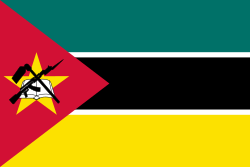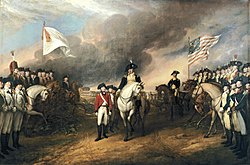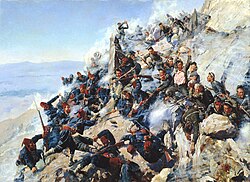
| Part of a series on |
| Anti-imperialism |
|---|
 |
Wars of national liberation, also called wars of independence or wars of liberation, are conflicts fought by nations to gain independence. The term is used in conjunction with wars against foreign powers (or at least those perceived as foreign) to establish separate sovereign states for the rebelling nationality. From a different point of view, such wars are called insurgencies or rebellions. [1] Guerrilla warfare or asymmetric warfare is often utilized by groups labeled as national liberation movements, often with support from other states. The term "wars of national liberation" is most commonly used for those fought during the decolonization movement. Since these were primarily in the third world, against Western powers and their economic influence, and a major aspect of the Cold War, the phrase has often been applied selectively to criticize the foreign power involved. [2]
Contents
- Legal issues
- Strategies and tactics
- History
- Decolonization period
- Ongoing wars defined as national liberation conflicts
- Conflicts
- See also
- Notes
- References
- Bibliography
- External links
Some of these wars were either vocally or materially supported by the Soviet Union, which claimed to be an anti-imperialist power, supporting the replacement of Western-backed governments with local Communist or other non pro-Western parties. [1] [3] In January 1961 Soviet premier Nikita Khrushchev pledged support for "wars of national liberation" throughout the world. [4] On the other hand, the Soviet involvement was often viewed as a way to increase the size and influence of the Soviet Bloc, and thus a form of imperialism itself. The People's Republic of China criticized the Soviet Union as being social imperialist. In turn, China presented themselves as models of independent nationalist development outside of Western influence, particularly as such posturing and other long-term hostility meant they were regarded as a threat to Western power and regarded themselves as such, using their resources to politically, economically and militarily assist movements such as in Vietnam. When the nation is defined in ethnic terms, wars fought to liberate it have often entailed ethnic cleansing or genocide in order to rid the claimed territory of other population groups. [5] [6] [7]












